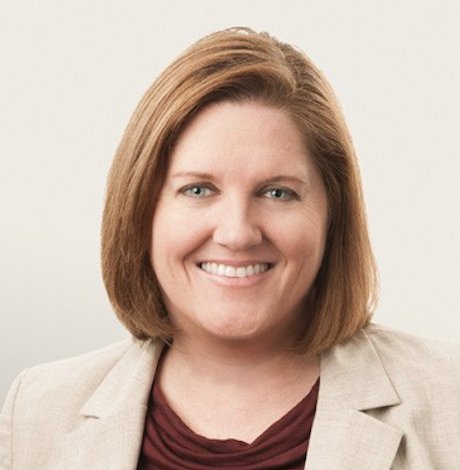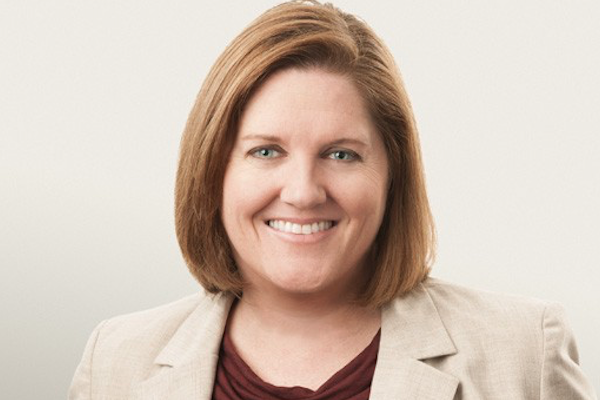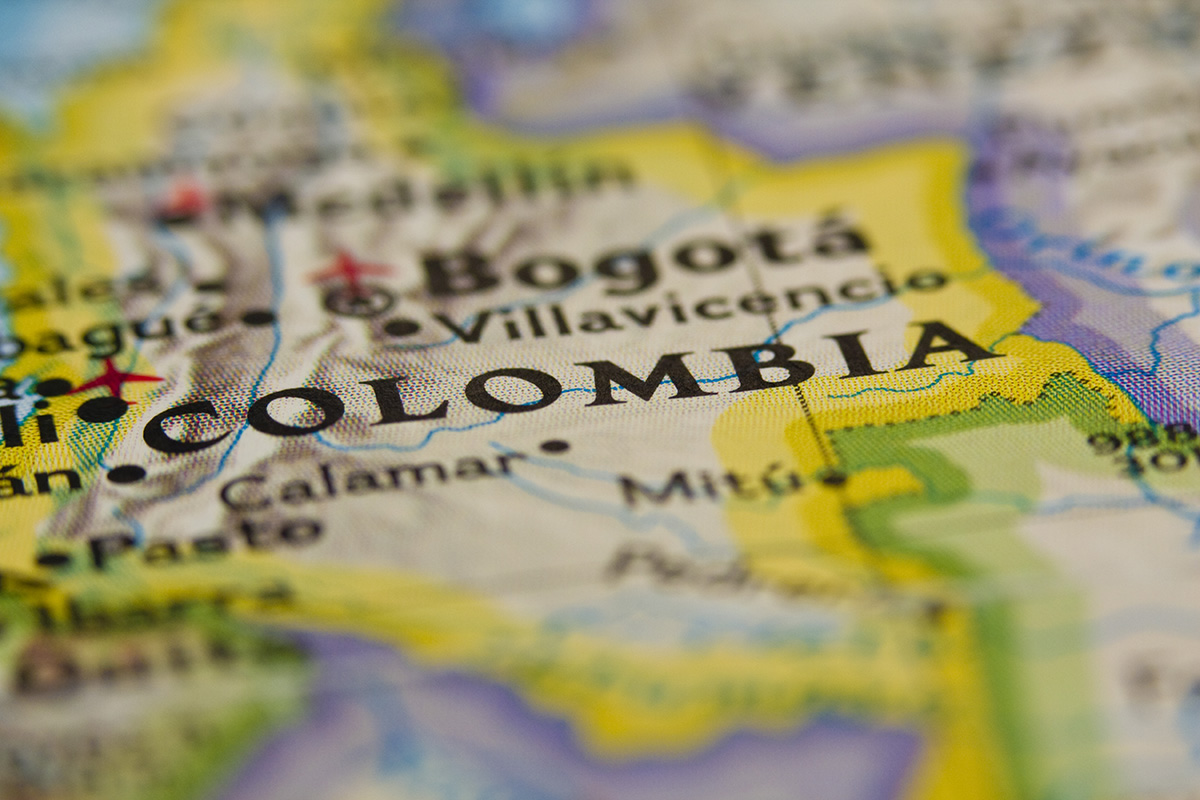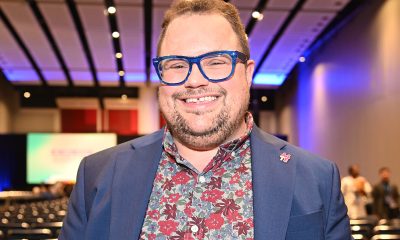News
DNC hires first lesbian CEO, former head of EMILY’s List
O’Connell worked for years to elect pro-choice women to office


The DNC hired Jess O’Connell as chief executive officer. (Photo courtesy DNC)
The Democratic National Committee has for the first time hired an out lesbian at its chief executive officer, appointing the former head of EMILY’s LIST to the top leadership position.
The DNC named Jess O’Connell as CEO after she served four years at EMILY’s LIST, which seeks to elect pro-choice women to public office. Her appointment comes shortly after the election of Tom Perez as DNC chair.
“Every single day we are witnessing unprecedented activism and excitement across our nation,” O’Connell said in a statement. “I am thrilled to join the fight at the national party to make sure we translate this moment into a movement, and a movement into votes. The DNC has incredible potential and, under the leadership of Chair Perez, I’m ready to jump in and help make this organization more inclusive, effective, and influential.”
As CEO, O’Connell will oversee the day-to-day operations and DNC-wide restructuring as the organization undergoes a transition after Democratic losses in the 2016 election. The goals of the DNC are to strengthen the organization, increase collaboration with progressive partners and better serve state parties, territory parties and Democrats abroad.
“Jess has an impressive progressive track record and I am honored that she will lend her talents to rebuilding our party and electing Democrats,” Perez said in a statement. “She knows that we as a party need to get back to basics. We need to organize in every zip code and better communicate our message of inclusion and opportunity. We know what happens when Democrats don’t win, because we are bearing witnesses to the chaos and harm to working families that results with Republicans at the helm.
Soon after his election as DNC chair, Perez asked all top level officials who were previously at the organization to submit their letters of resignation. But O’Connell’s appointment isn’t a consequence of that action. A DNC spokesperson said there was no one in the role of chief executive officer at the time Perez came to the DNC.
Prior to her work at EMILY’s List, O’Connell was senior vice president and chief of staff for the Center for American Progress and served as a progressive activist for more than 20 years. She lives in Maryland with her spouse Holly, a librarian with Montgomery County Public Schools.
National
Victory Institute to honor Biden at D.C. conference
Former president to receive award on Friday

The LGBTQ+ Victory Institute on Friday will honor former President Joe Biden at its annual International LGBTQ+ Leaders Conference in D.C.
Biden will receive the Chris Abele Impact Award in recognition of what the Victory Institute described as “his historic role in championing LGBTQ+ rights and for his leadership in achieving the most LGBTQ+ inclusive administration in U.S. history.” Biden will be the award’s third recipient.
“President Biden has shown unwavering commitment to ensuring LGBTQ+ people can participate fully and openly in our democracy,” said Victory Institute President Evan Low in a press release. “From appointing a record number of LGBTQ+ leaders to reversing harmful policies and expanding civil rights protections, his administration set a new and necessary standard for what inclusive governance looks like.”
“And now, we’re seeing LGBTQ+ elected officials lead the way on everyday issues that are important to most Americans like groceries, housing, and lowering the costs of healthcare,” he added. “This award honors not only his achievements, but also the real impact these changes have had on LGBTQ+ Americans across the country.”
The conference will take place Dec. 4-6 at the JW Marriott Hotel in Downtown Washington, where more than 700 elected LGBTQ+ political leaders and human rights advocates are expected to attend.
Notable officials slated to participate include Massachusetts Gov. Maura Healey; Maine Gov. Janet Mills; Michigan Attorney General Dana Nessel; Hawaii Attorney General Anne Lopez; Arizona Attorney General Kris Mayes; U.S. Reps. Mark Takano (D-Calif.) and Robert Garcia (D-Calif.); Maine House of Representatives Speaker Ryan Fecteau; Mississippi state Sen. Fabian Nelson; San Antonio Mayor Gina Ortiz Jones; San Diego Mayor Todd Gloria; West Hollywood (Calif.) Mayor Chelsea Byers and Providence (R.I.) Mayor Brett Smiley.
Transgender Spanish Sen. Carla Antonelli, former U.S. Ambassador to Bosnia and Herzegovina Eric Nelson, and Robert Biedroń, a gay member of the European Parliament from Poland, are slated to attend. Earlene Budd, a longtime trans activist in D.C., and D.C. Councilman Zachary Parker (D-Ward 5) are also expected to participate.
Michael K. Lavers contributed to this story.
Colombia
Colombia anunció la inclusión de las categorías ‘trans’ y ‘no binario’ en los documentos de identidad
Registraduría Nacional anunció el cambio el 28 de noviembre

Ahora los ciudadanos colombianos podrán seleccionar las categorías ‘trans’ y ‘no binario’ en los documentos de identidad del país.
Este viernes la Registraduría Nacional del Estado Civil anunció que añadió las categorías ‘no binario’ y ‘trans’ en los distintos documentos de identidad con el fin de garantizar los derechos de las personas con identidad diversa.
El registrador nacional, Hernán Penagos, informó que hizo la inclusión de estas dos categorías en los documentos de: registro civil, tarjeta de identidad y cédula de ciudadanía.
Según la registraduría: “La inclusión de estas categorías representa un importante avance en materia de garantía de derechos de las personas con identidad de género diversa”.
Estas categorías estarán en el campo de ‘sexo’ en el que están normalmente las clasificaciones de ‘femenino’ y ‘masculino’ en los documentos de identidad.
En 2024 se inició la ejecución de diferentes acciones orientadas implementar componentes “‘NB’ y ‘T’ en el campo ‘sexo’ de los registros civiles y los documentos de identidad”.
Las personas trans existen y su identidad de género es un aspecto fundamental de su humanidad, reconocido por la Corte Constitucional de Colombia en sentencias como T-236/2023 y T-188/2024, que protegen sus derechos a la identidad y no discriminación. La actualización de la Registraduría implementa estos fallos que ya habían ordenado esos cambios en documentos de identidad.
Por su parte, el registrador nacional, Penagos, comentó que: “se trata del cumplimiento de unas órdenes por parte de la Corte Constitucional y, en segundo lugar, de una iniciativa en la que la Registraduría ha estado absolutamente comprometida”. Y explicó que en cada “una de las estaciones integradas de servicio de las más de 1.200 oficinas que tiene la Registraduría Nacional se va a incluir todo este proceso”.
National
Faith leaders denounce anti-transgender attacks
‘You are holy. You are sacred. We love you.’

This past Trans Awareness Week, 10 heads of diverse religious traditions issued a statement proclaiming that transgender, intersex, and nonbinary people are worthy of love, support, and protection. Led by Rev. Dr. Sofía Betancourt, president of the Unitarian Universalist Association, representatives from the Universal Fellowship of Metropolitan Community Churches, The Fellowship of Affirming Ministries, the Union for Reform Judaism, the Presbyterian Church, the Christian Church (Disciples of Christ), The Episcopal Church, the United Church of Christ, and Reconstructing Judaism called out the violent and systemic persecution of trans, nonbinary, intersex, and queer people–proclaiming that their faith and their humanity urged them to affirm that trans, intersex, and quere people are “sacred” and “holy.”
Their statement comes at a critical time. Over the past three months, Trump and his Cabinet’s anti-trans rhetoric has only intensified, with a report released late September by journalist Ken Klippenstein in which national security officers leaked that the FBI is planning to classify trans people as “extremists.” By classifying trans people as “Nihilistic Violent Extremists,” far-right groups would have more “political (and media) cover,” as Abby Monteil reports for them, for anti-trans violence and legislation.
While the news is terrifying, it’s not unprecedented – the fight against trans rights and classification of trans people as violent extremists was included in Project 2025, and in the past several weeks, far-right leaders’ transphobic campaign has expanded: boycotting Netflix to pressure the platform to remove trans characters, leveraging anti-trans attack ads in the Virginia governor’s race and banning professors from acknowledging that trans people exist. In fact last month, two Republican members of Congress called for the institutionalization of trans people.
It seems that the government shutdown was predicated, at least partially, on Trump’s own anti-trans policies that were attached as riders in the appropriations bill.
It’s a dangerous escalation of transphobic violence that the Human Rights Campaign has classified as an epidemic. According to an Everytown for Gun Safety report published in 2020, the number of trans people murdered in the U.S. almost doubled between 2017 and 2021. According to data released by the Gun Safety report from February 2024, 34 percent of gun homicides of trans, nonbinary, and gender expansive people remain unsolved.
As Tori Cooper, Director of Community Engagement for the Transgender Justice Initiative for the Human Rights Campaign Foundation, this violence serves a purpose. “The hate towards transgender and gender expansive community members is fueled by disinformation, rhetoric and ideology that treats our community as political pawns ignoring the fact that we reserve the opportunity to live our lives full without fear of harm or death,” Cooper said.
The faith leaders came out in this statement to affirm that it is their spiritual and human imperative to call out this escalating violence and protect trans, nonbinary, intersex, and queer people. The leaders acknowledge that historically and today, religion is used as a weapon of hate to degrade and deny the human dignity of LGBTQ+ peoples. The Supreme Court is hearing Chiles v. Salazar, a case about the constitutionality of a Colorado ban of conversion therapy for minors, with the majority of conversion therapy practices being faith based. And despite the Supreme Court declining to hear a case challenging the constitutionality of same-sex marriage conferred in Obergefell v. Hodges, efforts to end marriage equality remain ongoing with Katy Faust’s End Obergefell movement.
“During a time when our country is placing their lives under increasingly serious threat,” the statement reads, “there is a disgraceful misconception that all people of faith do not affirm the full spectrum of gender – a great many of us do. Let it be known instead that our beloveds are created in the image of God – Holy and whole.”
The faith leaders argue that commendation of LGBTQ peoples and religiously motivated efforts to deny their dignity and rights is not the belief of all faith communities, and far-right Christian nationalist communities and others who uphold homophobia and seek to exact it writ large in the United States do not speak for all faith leaders.
This is a critical piece of the statement and builds on historical precedence. During the 1980s AIDS crisis, when far-right Christian leaders like Jerry Falwell, one of the founders of the Moral Majority, stated that HIV was “God’s punishment” for LGBTQ+ people and indicative of a broader moral decline in America, affirming faith communities came out to affirm the dignity and divinity of queer people. As funeral homes and churches refused to prepare the dead and bury them, some faith communities stepped up to say that these homophobic leaders do not speak on behalf of all people of faith.
In 1985, the United Church of Christ General Synod urged its member congregations to claim and declare themselves “Open and Affirming,” in order to express their welcome and support for LGBTQ+ people, and two years later, the Church of the Brethren issued a statement titled “A Call to Compassion” where conference members urged member congregations to speak out boldly against discrimination, provide direct care to people with HIV/AIDS, and actively educate themselves and others to stop the spread of fear and prejudice surrounding the disease.
Just one year later, the Evangelical Lutheran Church in America Church Council issued a statement, “AIDS and Church’s Ministry of Caring,” which outlined the ways in which welcoming, ministering to and advocating on behalf of people with HIV/AIDS is critical to their mission. Even the US Conference of Catholic Bishops, which earlier this month banned gender-affirming care at Catholic hospitals, issued a statement in 1987 calling discrimination against people with HIV/AIDS “unjust and immoral,” and denouncing the label of “innocent” or “guilty” patients.
Thus, the faith leaders’ statement this past week builds on a rich history of faith communities fighting the stigma that far-right faith groups perpetuate about LGBTQ+ people and committing to action. What sets this latest statement apart is its decidedly interfaith heart, which speaks to the history of the Pride Interfaith Service in Washington, DC that was first started by a group of faith leaders and lay people who gathered at the AIDS Memorial quilt.
As the statement reads, “Our scriptures vary, but they share a common conviction. As we make justice our aim we must give voice to those who are silenced. Our shared values, held across many faiths, teach us that we are all children of God and that we must cultivate a discipline of hope, especially in difficult times. As such, we raise our voices in solidarity to unequivocally proclaim the holiness of transgener, nonbinary, and intersex people, as well as the recognition of the entire spectrum of gender identity and expression.”
The statement ended by arguing that they need to call out the violence they are witnessing. Their silence, they argue, would be in compliance and reinforce the idea that homophobic religious leaders and lay people speak on behalf of all people of faith. Their statement is not only words, however, it is a written promise affirming the dignity and holiness of queer people but also to protect them in the face of increasing violence and persecution.
“When people of faith and conscience stay silent in the face of oppression, we are all made less whole. When people of faith and conscience speak out against that which violates the sacred in its own name, we have the power to stay the hand of sin. Transgender, nonbinary, and intersex people are vulnerable today,” the statement concluded.
“Our faiths, our theologies, and our practices of prophetic witness call on us to say with one voice to transgender people among us: ‘You are holy. You are sacred. We love you. We support you, and we will protect you.’”




















